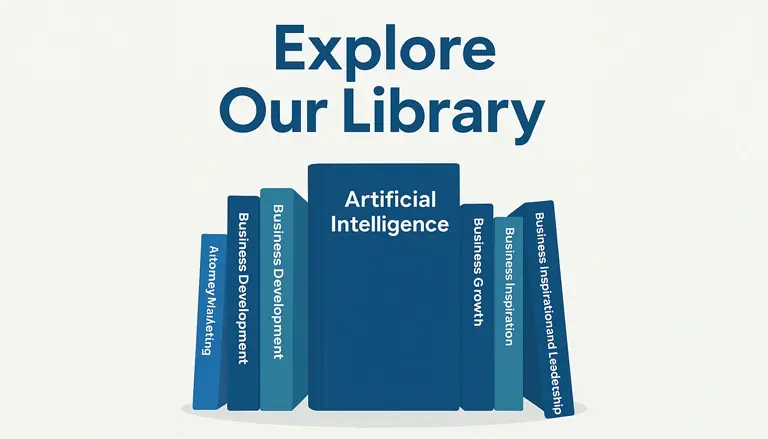

FCC Postpones Implementation of One-on-One Consent Rule: What It Means for Businesses and Consumers
Posted January 30, 2025 by Kevin Chern
The Federal Communications Commission (FCC) has recently announced a one-year postponement of the implementation of the one-on-one consent rule outlined in Section 64.1200(f)(9) of its regulations. This rule, designed to combat unlawful text messages, was initially set to take effect on January 27, 2025. However, due to significant legal challenges and compliance concerns, the rule’s implementation has now been delayed until January 26, 2026, or earlier if a court decision allows.
This delay, announced on January 24, 2025, has sparked conversations about the FCC’s priorities, the role of judicial review, and how businesses will adapt to these evolving requirements. In this article, we’ll dive into the history and implications of this rule, explore why its implementation has been postponed, and discuss the broader context of how changes in political administration may have influenced the delay.
What Is the One-on-One Consent Rule?
The one-on-one consent rule, as part of the FCC’s ongoing efforts to curb illegal robocalls and spam text messages, seeks to require explicit prior express consent from consumers for each specific seller or entity sending text messages. This rule stems from the Telephone Consumer Protection Act (TCPA) of 1991, which aims to protect consumers from invasive and often fraudulent communications.
Key Features of the Rule:
- Explicit Consent: The rule mandates that businesses must obtain prior written consent on a “one-to-one” basis for every individual seller or entity that wishes to send marketing messages to consumers.
- Combatting Spam: By narrowing consent requirements, the FCC aims to eliminate gray areas that allow businesses to contact consumers on behalf of multiple sellers under a single consent.
- Enhanced Accountability: The rule ensures businesses can no longer rely on broad, vague language in their consent forms, thereby reducing opportunities for abuse.
While the intention behind the rule is to protect consumers from spam and fraud, it has also raised significant concerns for businesses regarding compliance costs and the potential disruption to legitimate marketing practices.
Why Did the FCC Delay the Rule?
The FCC’s decision to delay the rule stems from several factors, including legal challenges, industry pushback, and the pending judicial review. Here’s a closer look at the reasons behind the postponement:
1. Legal Challenges by the Insurance Marketing Coalition (IMC):
The IMC filed a petition for review of the revised rule in the Eleventh Circuit Court, arguing that the rule imposes significant burdens on businesses. The court heard oral arguments in December 2024, and its decision is still pending. The FCC decided to delay the rule’s implementation to avoid imposing compliance costs on businesses while the court deliberates.
2. Compliance Concerns:
Many businesses, especially small and medium-sized enterprises, expressed concerns about their ability to comply with the rule by the original January 2025 deadline. Commenters highlighted the significant costs and operational challenges associated with implementing the rule, particularly for industries that rely on text-based communication for marketing and customer engagement.
For example:
- LendingTree raised concerns about how the rule could limit “curated comparison shopping,” a model many businesses use to connect consumers with tailored offers.
- QuinStreet, an online marketing company, emphasized how the rule could harm small businesses by reducing their ability to compete with larger, established brands.
3. Judicial Review and Public Interest:
The FCC cited Section 10(d) of the Administrative Procedure Act (APA) to justify the postponement, stating that “justice so requires” the delay. The agency argued that implementing the rule before the court’s decision could lead to unnecessary burdens on businesses, particularly if the rule were ultimately overturned or modified.
Moreover, the delay allows the FCC to maintain the regulatory status quo, ensuring that businesses are not subjected to conflicting requirements during the judicial review process.
The Role of Political Administration in the Delay
Changes in political administration often bring shifts in regulatory priorities, and the FCC’s decision to postpone this rule may reflect broader trends under the current administration.
A Shift in Priorities:
Under the prior administration, the FCC aggressively pursued stricter consumer protection measures against robocalls and spam texts. However, the current administration appears to have adopted a more balanced approach, weighing the interests of businesses alongside consumer protection. This is evident in the FCC’s decision to delay the rule to avoid undue harm to businesses while awaiting judicial clarity.
Lobbying and Industry Influence:
The postponement also highlights the influence of industry lobbying. Organizations like the IMC and Responsible Enterprises Against Consumer Harassment (REACH) have been vocal in their opposition to the rule, arguing that its strict requirements could stifle innovation and disproportionately harm smaller businesses.
Implications of the Postponement
The delay in implementing the one-on-one consent rule has far-reaching implications for businesses, consumers, and the broader regulatory landscape. Here’s what stakeholders can expect:
For Businesses:
- Temporary Relief: Businesses now have an additional year to adapt to the rule, giving them more time to update their consent practices, implement compliance systems, and train employees.
- Uncertainty Persists: While the delay offers temporary relief, businesses still face uncertainty about the rule’s ultimate fate. Companies must prepare for the possibility that the rule will be upheld and enforced in 2026.
- Potential Compliance Costs: If the rule is upheld, businesses may face significant costs to ensure compliance, particularly those that rely on multi-seller consent practices.
For Consumers:
- Continued Exposure to Spam: The delay means consumers will not yet benefit from the enhanced protections offered by the one-on-one consent rule. As a result, spam texts and robocalls may continue at current levels for the foreseeable future.
- Long-Term Benefits: If the rule is ultimately implemented, consumers can expect greater transparency and control over who contacts them and for what purpose.
For the FCC:
The postponement underscores the challenges of balancing consumer protection with industry concerns. It also highlights the importance of judicial review in shaping the FCC’s regulatory agenda. Moving forward, the agency will need to navigate these competing interests carefully to ensure its rules are both effective and enforceable.
What’s Next for the One-on-One Consent Rule?
As the FCC awaits the Eleventh Circuit Court’s decision, businesses and consumers alike will be watching closely. If the court upholds the rule, businesses will need to act swiftly to ensure compliance by the new January 2026 deadline. On the other hand, if the court overturns or modifies the rule, it could prompt the FCC to revisit its approach to consumer protection under the TCPA.
For now, the postponement offers a temporary reprieve for businesses but leaves the ultimate fate of the one-on-one consent rule uncertain. As regulatory, legal, and political dynamics continue to evolve, the FCC’s handling of this issue will likely serve as a bellwether for its broader approach to balancing consumer protection with industry innovation.
The FCC’s decision to delay the implementation of the one-on-one consent rule highlights the complex interplay between regulation, judicial review, and industry interests. While the postponement provides temporary relief for businesses, it also delays much-needed protections for consumers. As the legal and regulatory landscape continues to shift, stakeholders must remain vigilant and prepared for whatever comes next.
What are your thoughts on the FCC’s decision? Do you believe the delay strikes the right balance between consumer protection and business interests, or does it favor one side over the other? Let us know in the comments below!
Tags:




